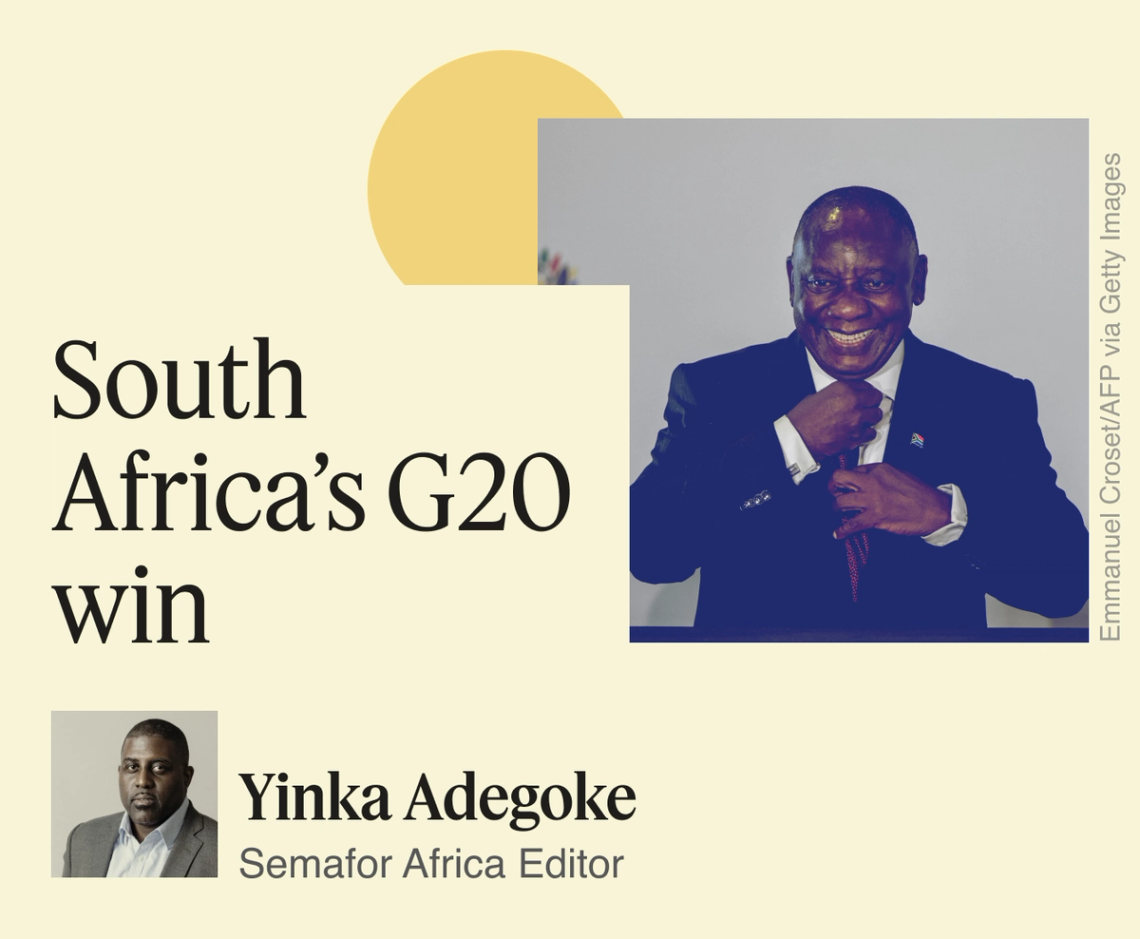 South Africa’s government has had a tough few weeks on the world stage as it gears up for the G20 summit taking place here in Johannesburg this weekend — the first on the African continent. The dramatic withdrawal of the US and the no-show from China’s Xi Jinping has taken some of the shine off what was expected to be a triumphant week of global leadership for President Cyril Ramaphosa, and Africa in general. But it has not all been for nothing. South Africa’s G20 leadership has raised the profile of key challenges facing the continent: In particular, rethinking how to ensure debt sustainability for low-income countries, and how to mobilize finance for a just energy transition. It’s clear Africa’s future is being squeezed by a mix of debt, climate pressure, and shrinking development finance options. Most Africans now live in countries that spend more on interest payments than on their health or education budgets, even as climate shocks are hitting harder and more often, battering crops, deepening hunger, and eroding human wellbeing. Ahead of the G20 this weekend, Johannesburg is this week hosting the B20, where financial inclusion is emerging as one of the top talking points for corporate leaders, not only to drive economic engagement by all citizens but to ultimately build robust saving systems from which local funds can back infrastructure investment. Digital infrastructure will of course be key for driving financial inclusion. Tomorrow, at Semafor’s Next 3 Billion On Tour event, I’ll be talking to South Africa’s Minister of Communications and Digital Technologies Solly Malatsi about how the continent’s largest economy is striving to get the internet to more of its citizens while also enabling an environment for affordable access and devices. |